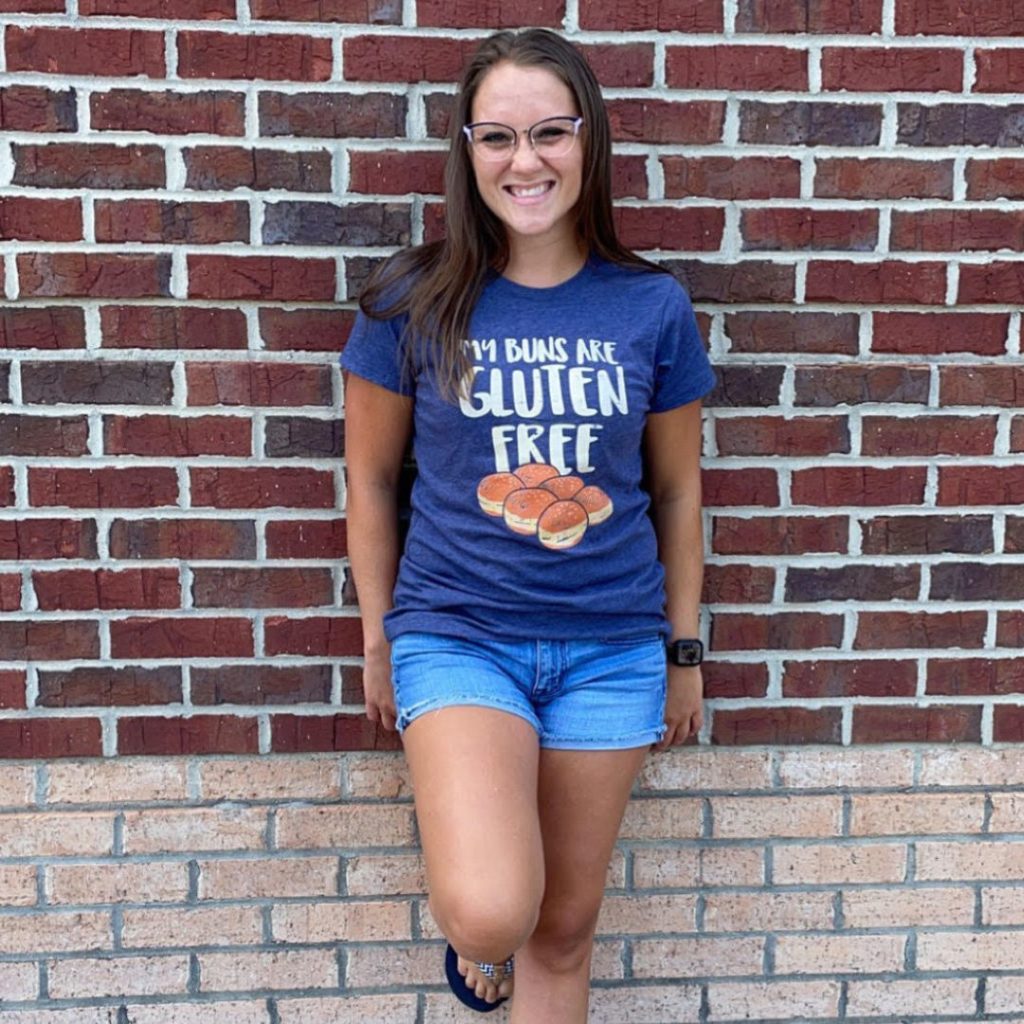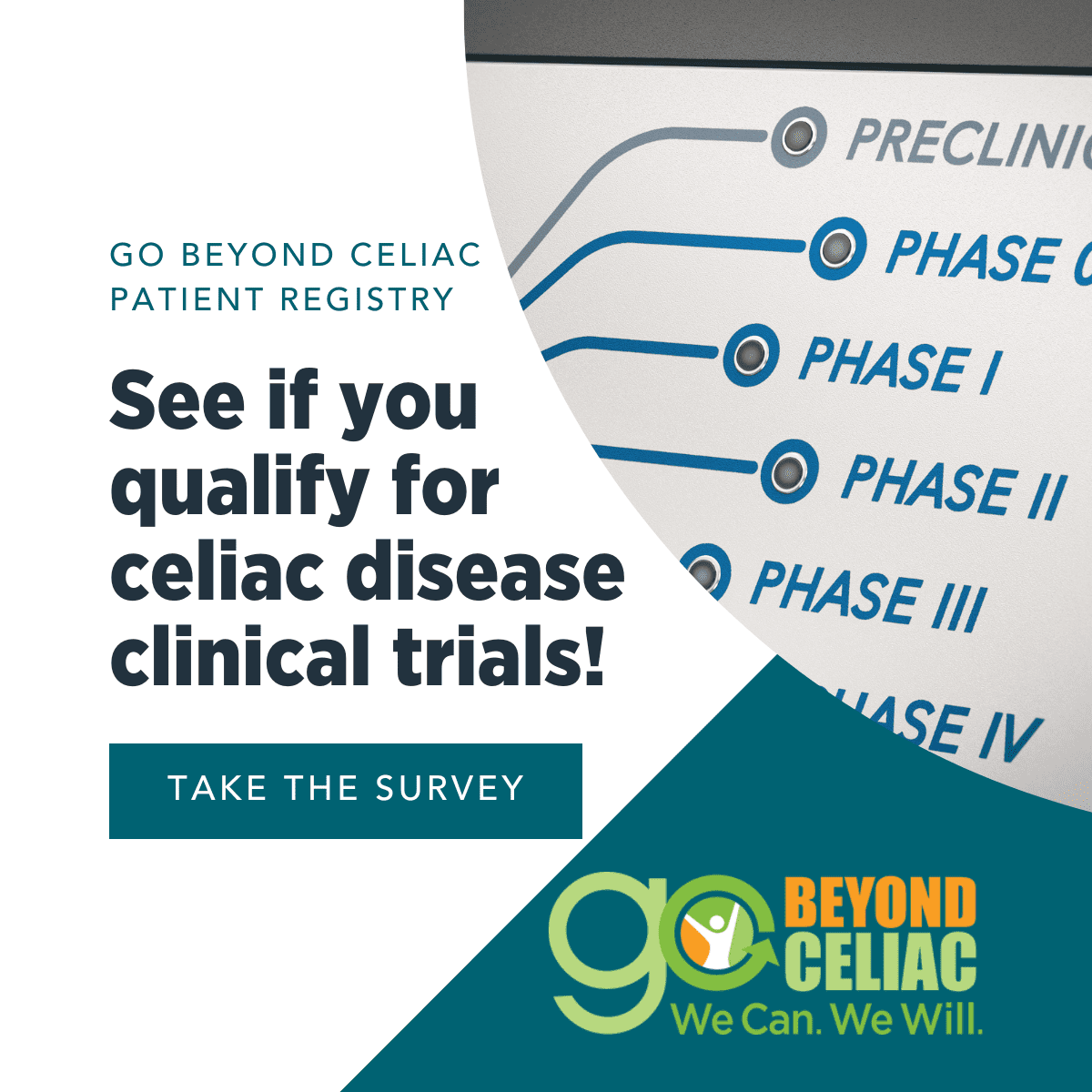Describe your life prior to diagnosis:
Prior to my diagnosis and the onset of my symptoms, I lived through food. In middle school, I could eat as much as a teenage boy. I ate two meals at dinners and had a very fast metabolism. Every year, I looked forward to an endless shrimp fest and reaching that 100 shrimp mark. My family always joked I was lucky I didn’t have celiac disease because I lived off of pizza, pasta, and bread (oof).
This love for food evolved as I grew up. I traveled to Europe and around the US, but my primary love was discovering the culture of each place I visited. I did this by finding local, family-owned restaurants and meeting locals rather than tourists. While traveling, I was always spontaneous when selecting where I would eat.
That has been the toughest part of all for me. Mourning the parts of me that I feel less in touch with since my diagnosis. The spontaneity of travel and food is gone and replaced with research and pre-planning. While I have adapted to this new way of life, I still miss the old me and how carefree she could be.
How did you come to know (or suspect) that you have celiac disease?
Honestly, I didn’t know much about celiac disease. I knew I had been tested before and never realized that it could be triggered by a life stressor and start later in life. I never suspected it myself and I trusted the doctors.
But when someone first asked if I could have it, the more I thought about it and researched it, the more it seemed to explain my symptoms: iron deficiency anemia, osteopenia, stomach pain and cramps despite medications, change in bowel movements, constipation, slowed stomach digestion, headaches, brain fog, nausea, fatigue and joint pain.
Since being diagnosed, I have become an avid researcher and bigger advocate for myself with doctors. I trust them, but I also trust myself, my gut, and the signs my body is showing me.
If you were diagnosed, who made the diagnosis?
While I had been seeing my primary care physician (PCP) and a gastroenterologist for two years, it was ultimately a rheumatologist who suspected celiac disease.
I had been on a medication for gastroparesis during this time and a random pharmacist in the town I’d just moved to informed me that long-term use can lead to osteoporosis. I immediately called my PCP and pushed for a bone density scan. The results indicated osteopenia. I was only 22, and after reviewing my entire medical history, the rheumatologist suspected celiac disease. He ran the blood work while I followed through on an upper endoscopy with my gastroenterologist. Sure enough, I was diagnosed with celiac disease.
How long did it take for you to get diagnosed since your first symptoms and what (if any) challenges did you face along the way?
I had a spinal surgery in May of 2017 and by August of that year, I started having severe stomach pain, cramps, bloating, slowed digestion and bowel movements. Yet I didn’t end up getting diagnosed until January of 2020.
Celiac disease wasn’t even on anyone’s radar initially, because I had been tested when I was in middle school, 10 years prior, and it was negative; no one in my small town thought to test me again. I was diagnosed with gastroparesis, put on an acid pump inhibitor, and no follow-up was ever scheduled. I still had stomachaches, but they weren’t as severe at first.
By the beginning of 2019, I had stomach pain regularly despite the medication. After a pharmacist indicated that the medication shouldn’t be used long-term, I was shocked. No one checked in on me after prescribing it, came up with alternative treatment methods, or warned me of the side effects. I had to call and push for a bone density scan and then request an appointment with a rheumatologist. No one questioned the wide range of symptoms I had or considered there may have been one cause for all of it. After a while, I felt as if I was my own and only advocate, besides my parents.
Do you believe anything could have sped up your diagnosis? If so, please explain:
If anything, my doctors could have benefited from some additional education. Most of them did not know that you can test negative for celiac disease and then still have it triggered later in life.
The specialists I saw never took the time to look at all of the symptoms I was experiencing, they only wanted to look at the symptoms that fit within their specialty. If someone had just looked at the big picture of my symptoms, it may not have gotten to the point of developing osteopenia or taken over two years to understand what was happening to me.
Describe your experience with living with celiac disease:
I was diagnosed in January of 2020 in my hometown. Two days later I returned to my new state, 10 hours away, to continue school for my master’s degree. I left confused by a diagnosis, leaving my support system behind, and returned to my apartment alone in a city I hadn’t even lived in for six months.
I was completely overwhelmed; I’d start the gluten-free diet, get sick, but could never figure out the cause. One day I pulled every single spice, seasoning, and package out of my freezer, fridge, pantry, and any cabinet I could find. I sat in the middle of my kitchen surrounded by food, determined to figure out which one was causing me to get glutened. After I found the culprits and threw everything out, I read that the rashes I had been having could have been caused by gluten in my makeup and bathroom products (learn more about gluten in personal hygiene products). So I repeated that entire scenario in my bathroom. Six hours later I was scared and overwhelmed about where to shop, what I could eat, and how I was going to do this alone for the rest of my life.
By March, we were in the beginning of the full-scale lockdown with COVID-19. The lockdown ended up being a blessing for me. I returned home for three months to my parents and my brother, and we all figured it out together.
After the initial learning curve, I felt like an expert, but then I started having symptoms again. One vitamin B-12 deficiency and a lot of symptoms later, I found out I had been breathing in flour at the restaurant I worked at on the weekends and ended up having to change jobs.
It has been a rough road, but I have learned to adapt and overcome.
Is there anything else you’d like to add to your story?
There have been many times I have started feeling down, overwhelmed, or frustrated with the feelings of hopelessness that come with this diagnosis. This is not an easy road to navigate and I am incredibly thankful for my support network. I don’t know how I would have made it through the last three years without my family and friends. Just screaming thank you to them for all they have done for me and all they never knew they helped me through.



